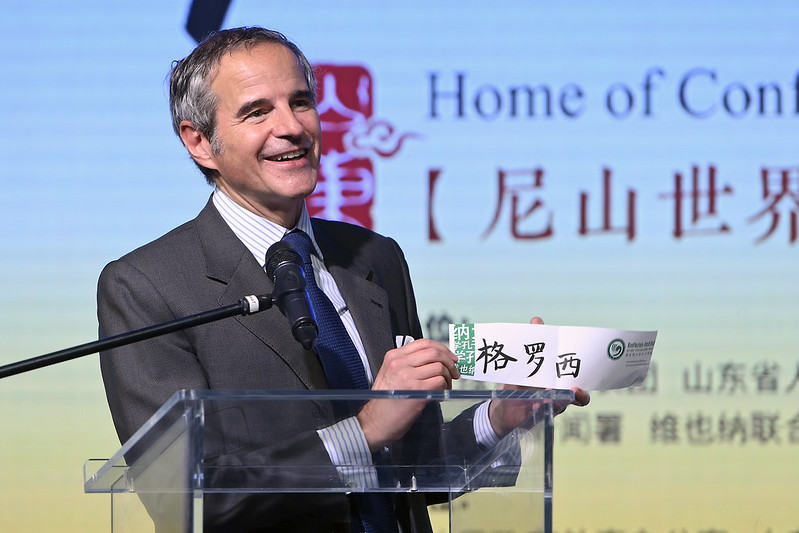
UN nuclear watchdog growingly worried over Ukraine plant safety

The head of the United Nations nuclear watchdog is expressing growing anxiety about the safety of the Zaporizhzhia Nuclear Power Plant, after the governor of the Russia-occupied area ordered the evacuation of a town where most plant staff live amid ongoing attacks in the area.
The plant is near the front lines of fighting, and Ukrainian authorities on Sunday said that a 72-year-old woman was killed and three others were wounded when Russian forces fired more than 30 shells at Nikopol, a Ukrainian-held town neighbouring the plant.
“The general situation in the area near the Zaporizhzhya Nuclear Power Plant is becoming increasingly unpredictable and potentially dangerous,” International Atomic Energy Agency head Rafael Grossi said in a warning that came Saturday before the latest report of attacks. “I’m extremely concerned about the very real nuclear safety and security risks facing the plant.”
Grossis comments were prompted by an announcement Friday by Yevgeny Balitsky, the Russian-installed governor of the partially-occupied Zaporizhzhia province, that he had ordered the evacuation of civilians from 18 settlements in the area, including Enerhodar, which is located next to the power plant, which is Europes largest.
The settlements affected are about 50 to 70 kilometers (30 to 40 miles) from the front line of fighting between Ukraine and Russia, and Balitsky said that Ukraine had intensified attacks on the area in the past several days.
The region is also widely seen as a likely area where Ukraine may focus its anticipated spring counteroffensive. The Ukrainian General Staff said Sunday that the evacuation of Enerhodar had already begun. According to an update posted on Facebook, the General Staff said the first residents evacuated were those who took Russian citizenship following the capture of the town by Moscow early in the war. They were being taken to the Russia-occupied Azov Sea coast, about 200 kilometers (120 miles) to the southeast.
Grossi said that operating staff of the nuclear power plant, whose six reactors are currently all in shutdown mode, hadnt been evacuated as of Saturday but that most live in Enerhodar and the situation has contributed to increasingly tense, stressful and challenging conditions for personnel and their families.
He added that IAEA experts at the nuclear site are continuing to hear shelling on a regular basis.
We must act now to prevent the threat of a severe nuclear accident and its associated consequence for the population and the environment, Grossi said. This major nuclear facility must be protected. I will continue to press for a commitment by all sides to achieve this vital objective.
Elsewhere, Russian shelling on Saturday and overnight killed six civilians and wounded four others in Ukraine’s southern Kherson region, according to a Telegram update published Sunday by the local administration. Five civilians were wounded in the eastern Donetsk region, the epicenter of the fighting in recent months, local Gov. Pavlo Kyrylenko reported on Sunday morning.
Meanwhile, Ukrainian forces overnight attacked the largest port in the Russia-occupied Crimean Peninsula with drones, a Kremlin-installed local official said on Telegram early Sunday. According to the post by Mikhail Razvozhayev, the governor of Sevastopol, 10 Ukrainian drones targeted the city, three of which were shot down by air defence systems. Razvozhayev said that there had been no damage.
(Except for the headline, this story has not been edited by The Federal staff and is auto-published from a syndicated feed.)


